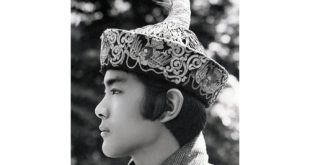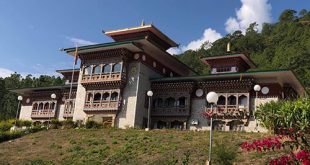From the birth of Radio NYAB on his birthday in 1973 to the rise of private press, Bhutan’s media journey reflects His Majesty’s foresight and enduring legacy
On 11th November 1973, as Bhutan celebrated the Birth Anniversary of His Majesty The Fourth Druk Gyalpo Jigme Singye Wangchuck, a small group of young Bhutanese, the National Youth Association of Bhutan (NYAB), switched on a 400-watt transmitter in Thimphu to air 30-minute of English broadcast. Radio NYAB, founded by the young volunteers, became the first bridge connecting people across mountains and valleys.
When His Majesty ascended the Golden Throne in 1972, Bhutan was at the point of modernization. Roads, electricity, and schools were spreading across the country, but there was little infrastructure for mass communication.
In 1979, the initiative came under the Department of Information, and by 1986, under His Majesty’s reign, it was renamed the Bhutan Broadcasting Service (BBS), a transformation that reflected His Majesty’s belief that communication was as vital as development.
His Majesty envisioned modernization with a human face, development that informed and uplifted. The growth of radio, and later television, was not seen merely as technology, but as a means to share values, promote language, and unite a diverse nation.
In 1992, His Majesty issued a Royal Kasho granting BBS full autonomy, making Bhutan one of the few countries in the region to delink its national broadcaster from direct government control. This move was revolutionary for a small kingdom, setting the foundation for independent public broadcasting.
Under this autonomy, BBS upgraded its technology, expanded FM and shortwave coverage, and eventually introduced television in 1999, coinciding with the Silver Jubilee of His Majesty’s Coronation. The simultaneous introduction of TV and the internet marked Bhutan’s entry into the global communication era, again guided by His Majesty’s careful vision.
His Majesty’s establishment of the Dzongkha Development Commission in 1986 further shaped media content and communication in Bhutan. By strengthening the national language, he ensured that media, whether in print, radio, or television became a vehicle for cultural preservation.
Through multilingual programming in Dzongkha, English, Tshanglakha, and Lhotshamkha, BBS became a unifying voice, echoing the diversity of Bhutan while promoting a shared sense of belonging.
As His Majesty began preparing Bhutan for democracy, he understood that good governance requires an informed citizenry and multiple voices. Hence, he encouraged the privatization of media and the gradual emergence of a free press. His Majesty’s reforms paved the way for private newspapers and radio stations. BBS and Kuensel was delinked in 1992 and in 2006 Bhutan Times and Bhutan Observer were allowed as the first private newspapers.
This move reflected his deep conviction that a strong democracy must rest on a strong media, one that educates, questions, and engages constructively with the government and the people.
The establishment of the Bhutan Media Foundation (BMF) in 2010, under Royal Charter by His Majesty the Fifth King, stands as a continuation of the Fourth King’s vision.
From a single youth-led radio in 1973 to (BBS), the national broadcaster (television and radio), Kuensel (1965), Bhutan Times (2006), Bhutan Today (2008), Business Bhutan (2009), Gyalchi Sarshog (2012), The Journalist (2009) and The Bhutanese (2012), are the current functional traditional news mass media in Bhutan.
Five decades after the birth of Radio NYAB, Bhutan’s media has now shifted significantly toward digitalization.
Almost all news outlets now operate websites and social media pages, with many audiences accessing news primarily through smartphones. Social media platforms like Facebook, YouTube, X (formerly Twitter), Instagram, and TikTok have also become key spaces for public dialogue and information-sharing.
 The Bhutanese Leading the way.
The Bhutanese Leading the way.




